
THE VOICE OF INTERNATIONAL LITHUANIA
|
VilNews has its own Google archive! Type a word in the above search box to find any article.
You can also follow us on Facebook. We have two different pages. Click to open and join.
|
Author Archive
- Posted by - (10) Comment
Section 8:
Lithuania has a 700-year history as home to numerous nationalities. The articles below are good examples of such historic as well as modern foreign influence.
VilNews offers more than 7.000 Lithuania-related articles. Click on the
18 section links on top of this page to read articles from different fields.
- Bookmark :
- Digg
- del.icio.us
- Stumbleupon
- Redit it
- Posted by - (0) Comment
unflinching eye contact with her
while she described her mother's
passion for cooking the traditional Lithuanian dishes
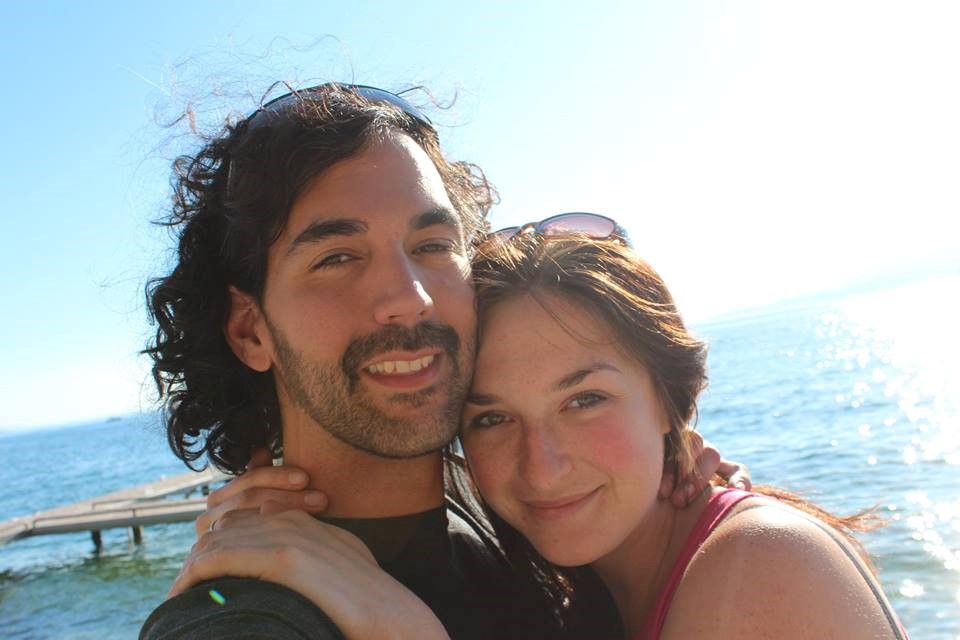
American Songwriter in Lithuania
- Bookmark :
- Digg
- del.icio.us
- Stumbleupon
- Redit it
- Posted by - (3) Comment
an important contact point for old
and new Muslim communities
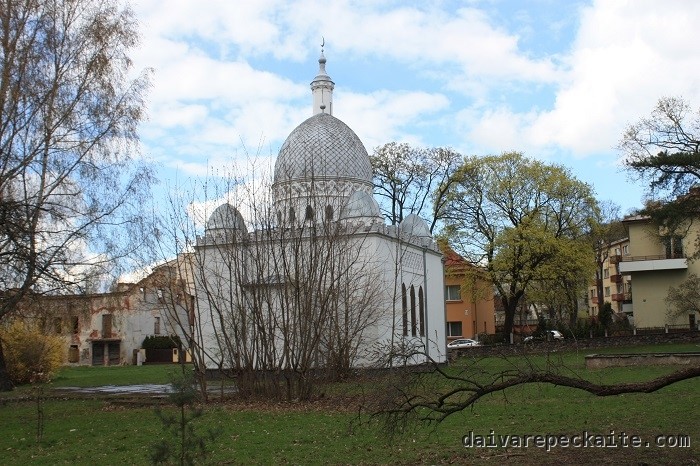
By Daiva Repečkaitė
http://www.daivarepeckaite.com/en
The community of Kaunas mosque provided an opportunity for anyone interested to go inside the unique Tatar mosque of Kaunas, to see a Muslim prayer, look around and enjoy food from various countries and cultures. The mosque has become an important contact point for old and new Muslim communities, the latter consisting of foreign students, workers, spouses of Lithuanians, expats and local converts. The 3000-strong Tatar community has been around for centuries and is can help their sisters and brothers in faith with accessing Lithuanian institutions, networking and, most importantly, feeling at home in this relatively homogeneous European society. Other functioning mosques are in distant small towns. Vilnius doesn′t have a mosque, and the current mayor, Remigijus Šimašius (liberal) made it clear that he will not do anything in his power to help establish one, even though, when Syrian and Iraqi refugees are resettled according to the EU scheme next year, the Muslim community in Vilnius will grow. There is not a single Shia mosque (most Shia Muslims are apparently from Azerbaijan), but Shia believers can attend Sunni services.
Read more...- Bookmark :
- Digg
- del.icio.us
- Stumbleupon
- Redit it
- Posted by - (1) Comment
Lithuanian business was greatly harmed by the financial crisis in 2008. Now, however, there are again many positive signs for the country's business sector.
VilNews offers more than 7.000 Lithuania-related articles. Click on the
18 section links on top of this page to read articles from different fields.
- Bookmark :
- Digg
- del.icio.us
- Stumbleupon
- Redit it
- Posted by - (7) Comment
into a Tech Park in Vilnius
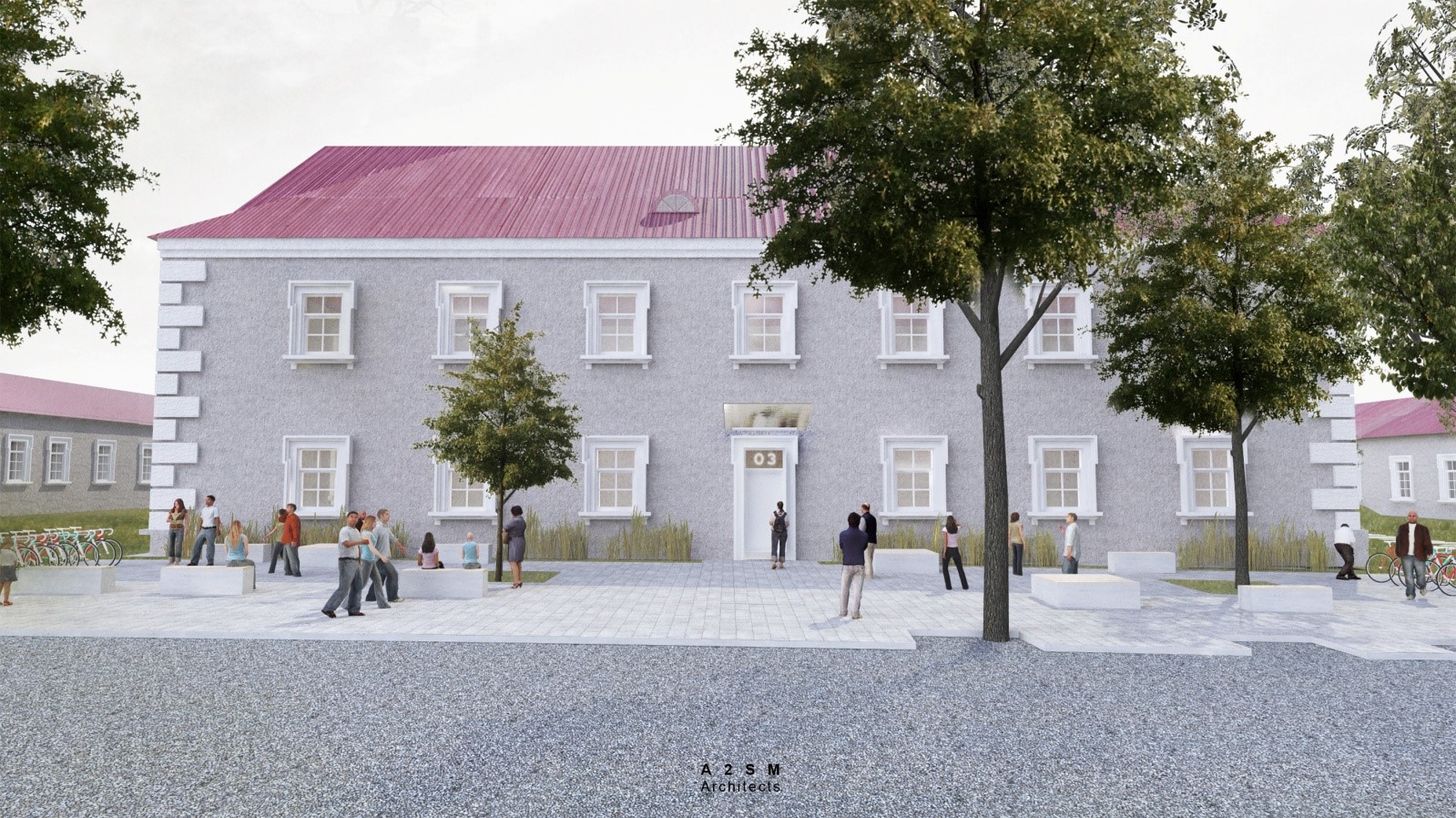
Communication Coordinator
Vilnius Tech Park
Two private investors, together with their partners, offered to municipality to lease the buildings for 25 years and invest nearly 8 m euro to the renovation of the heavily rundown buildings. The agreement has been made. While keeping their original looks and historical value (there are some fragments of decorated floors, etc. left that will be kept), the buildings are about to be reborn as 8 000 sq meter space for startups and related infrastructure.
Read more...- Bookmark :
- Digg
- del.icio.us
- Stumbleupon
- Redit it
- Posted by - (6) Comment
and minds for the sake
of a new Lithuania
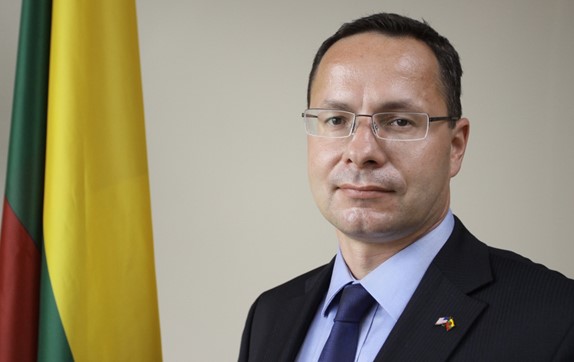
By Žygimantas Pavilionis,
Former Lithuanian Ambassador to the United States of America
I am deeply grateful for the exceptional honor and privilege to serve my country in Washington D.C. for five consecutive years (2010-2015). I guess it was the peak of my diplomatic career that inspired me to take my final step towards politics (I am now running for office in 2016 parliamentary elections), but most importantly, it was the period when I met and learned so much from my fellow Lithuanian Americans.
Why was this encounter so important for me personally?
First of all, I had an immediate connection to the strong and vibrant civil society of interwar independent Lithuania, preserved in Chicago and other great U.S. cities, strengthened by the great American spirit. The sense of human dignity, solidarity, Lithuanian heritage, our common mission was tremendous, inspiring, and breathtaking.
Read more...- Bookmark :
- Digg
- del.icio.us
- Stumbleupon
- Redit it
- Posted by - (16) Comment
By Aage Myhre
When thinking about fashion centers, one generally thinks about Milan, Paris, London or New York and not about Vilnius or Lithuania. However Vilnius is home to many innovative designers. It is also the manufacturing hub for several European brands. For many, Vilnius is attractive due to the combination of European quality and lower costs compared to many other European countries. To find out more, I had a chat with American Gene Emmer, living in Vilnius since 2008, owner of the company that makes the Kajamaz adult footed pajamas.
Read more...- Bookmark :
- Digg
- del.icio.us
- Stumbleupon
- Redit it
- Posted by - (3) Comment

By Grant Arthur Gochin
California - USA
Lithuania emerged from the yoke of the Soviet Union a mere 25 years ago. Since then, Lithuania has attempted to model upon other European nations, joining NATO, Schengen, and the EU. But, has the Soviet Union left Lithuania?
During Soviet times, government was administered for the people in control, not for the local population, court decisions were decreed, they were not the administration of justice, and academia was the domain of ideologues. 25 years of freedom and openness should have put those bad experiences behind Lithuania, but that is not so.
Today, it is a matter of expectation that court pronouncements will be governed by ideological dictates. Few, if any Lithuanians expect real justice to be effected. For foreign companies, doing business in Lithuania is almost impossible in a situation where business people do not expect rule of law, so, surely Government would be a refuge of competence?
Lithuanian Government has not emerged from Soviet styles. In an attempt to devolve power, Lithuania has created a myriad of fiefdoms of power, each speaking in the name of the Government, each its own centralized power base of ideology.
Since 2013, a debate has raged within Lithuanian society about a Holocaust perpetrator named Noreika. There is no question of his guilt, his signature is on Holocaust documents, witness statements place him squarely as a perpetrator, yet honors for him remain littered throughout the country, a complete absence of morality and accountability, rather, the elevation of a bigot, a murderer and a thief.

- Bookmark :
- Digg
- del.icio.us
- Stumbleupon
- Redit it
- Posted by - (4) Comment
2nd part: VilNews interview with
Professor Landsbergis, Veisaitė
 V. LANDSBERGIS IN STRASBOURG 1990 |
 SMUIKELĖ – V. LANDSBERGIS’ FAVOURITE PORTRAIT. BY R. PETROŠIŪTE FROM KELMĖ |

I. VEISAITE WITH HER DAUGHTER AND GRADCHILDREN
L/R: MICHAEL, ALINA AND DANIEL SLAVINSKY, 2011.
Journalist: Dalia Cidzikaitė
Questions prepared by Aage Myhre
Today we have the pleasure of presenting second last) part of a large, exclusive interview with two professors who have meant infinitely much for their homeland Lithuania. In today's interview, we focus on their memories, experiences of and thoughts about the BELOW eras of their lives, over the years 1950-2015:
· WHY IS STALIN STILL CONSIDERED A HERO BY MANY?
· THE LITHUANIAN PRESIDENT WHO WAS DEPORTED TO SIBERIA
· WAS LITHUANIAN PRESIDENT SMETONA
· MURDERED BY THE KGB?
· WHY DO LITHUANIANS ABROAD NOT RETURN HOME?
· DUAL CITIZENSHIP
· DID YOU KNOW EACH OTHER?
· LITHUANIA’S UNDERGROUND MOVEMENT DURING SOVIET TIMES
· HOW COULD THE LITHUANIAN COMMUNISTS
· GET BACK TO POWER ALREADY IN 1992?
· GEORGE SOROS AND A HUMANE DEVELOPMENT OF LITHUANIA
· DID YOU MEET VLADIMIR PUTIN FACE-TO-FACE?
· THE WORDS OF EINSTEIN
- Bookmark :
- Digg
- del.icio.us
- Stumbleupon
- Redit it
- Posted by - (1) Comment
Stanford University, California
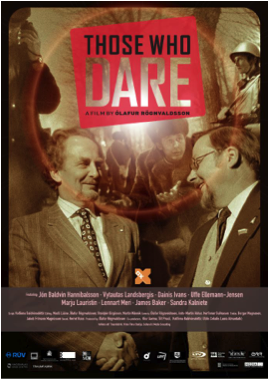
By Vytautas Sliupas,
Burlingame, CA
Stanford University in California is sponsoring Baltic Film Series! October 19th was the Opening Night of the film “Those Who Dare”. It features the Baltic nations' (Lithuania, Latvia and Estonia) struggle for the restoration of their independence, from 1986 to 1991 during the period of Gorbachev's “Perestroika”.
The film is based upon the live memories of Jon Baldvin Hannibalsson, Minister of Foreign Affairs of Iceland, 1988-1995. He visited Vilnius at the height of Lithuanian struggle, witnessed sieges of the Parliament and the TV tower and subsequently was instrumental in getting Iceland to be the first nation to recognize independence of the Baltic States. The film captures the dramatic course of events in the Baltic capitals of Vilnius, Riga and Tallinn in January 1991 when the Soviet OMON narcotized, Ministry of Internal Affairs of SSSR, troops attempted to brutally suppress the independence movements.
Mr. Jon B. Hannibalsson in person gave a 30 minute introduction of the events in the Baltics in those days. Two memorable events that had greatest influence on the world, and helped to convince other countries to recognize the Independences, he said, were “The Singing Revolution” and the “Baltic Way”.
The film “Those Who Dare” is highly recommended to everyone. Other Baltic Film Series will feature: “Dangerous Summer” (2000), “In the Crosswind” (2014), and “Land of Songs” (2014). The Baltic Film Series is co-sponsored by Stanford Libraries and the Hoover Institutes' Center for Russian, East European and Eurasian Studies.
- Bookmark :
- Digg
- del.icio.us
- Stumbleupon
- Redit it
- Posted by - (1) Comment
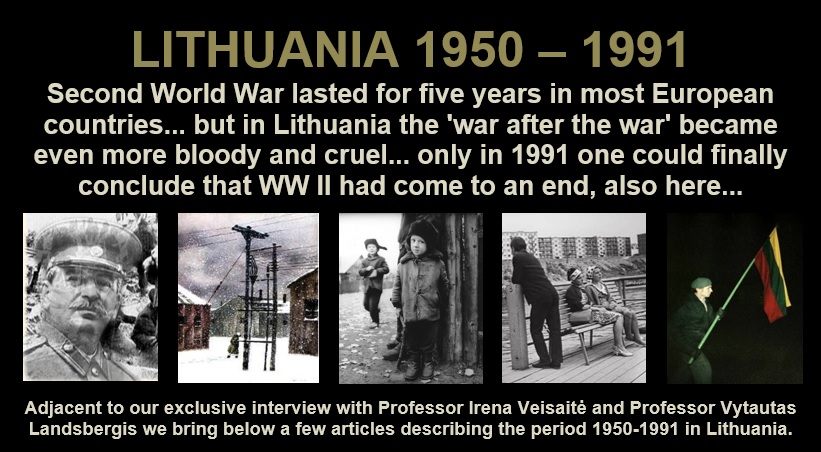
 |
THE WEST IGNORED ALL SOVIET ABUSES! |
 |
CHRISTMAS IN SIBERIA
A Lithuanian family at Lena river “The tents were freezing cold, harsh, and distressing; so, the adults decided to build better living conditions. "We can build barracks," said one Lithuanian, "We can catch the logs in the Lena River." The men waded barefoot into the icy water, caught floating logs, brought them to shore, and built the barracks. They covered the outside walls with snow and ice which they learned would help keep out the frigid temperature. They also found a large iron stove, which they placed in the middle of the building. https://vilnews.com/2011-01-christmas-in-siberia |
 |
DEPORTEES RETURNING FROM SIBERIA
It must have been quite a shock for the surviving deportees to return ‘home’ from Siberia to Lithuania in the 1950s and 1960s. The country they had loved and cared so much about was now ruled and mismanaged by Moscow-believing Communists. Since 1941 more than 300.000 persons had been deported to Siberia, with tens of thousands dying en route to or on the permafrost. The 1950s was the decade when Lithuania's 10-year guerrilla war against the superior Soviet forces came to an end, with the result that 22.000 Lithuanian forest brothers and about 70.000 Soviet soldiers had lost their lives, thus the longest and bloodiest guerrilla war of modern Europe. https://vilnews.com/2012-04-deportees-returning-%E2%80%98home%E2%80%99-from-siberia |
 |
LITHUANIA IN THE 1960s PHOTO: View from Antakalnis towards the (by then) new district Žirmūnai. By: Antanas Sutkus, 1964 |
 |
FINALLY … |
- Bookmark :
- Digg
- del.icio.us
- Stumbleupon
- Redit it
- Posted by - (0) Comment

Greetings from Wales!
By Anita Šovaitė-Woronycz
Chepstow, Wales
Think of a nation in northern Europe whose population is around the 3 million mark
- a land of song, of rivers, lakes, forests, rolling green hills, beautiful coastline
- a land where mushrooms grow ready for the picking,
- a land with a passion for preserving its ancient language and culture.
Doesn't that sound suspiciously like Lithuania? Ah, but I didn't mention the mountains of Snowdonia, which would give the game away.
I'm talking about Wales, that part of the UK which Lithuanians used to call "Valija", but later named "Velsas" (why?). Wales, the nation which has welcomed two Lithuanian heads of state to its shores - firstly Professor Vytautas Landsbergis, who has paid several visits and, more recently, President Dalia Grybauskaitė who attended the 2014 NATO summit which was held in Newport, South Wales.
We know very little about Lithuanian inhabitants of Wales prior to World War II. There must have been some, but documentation is difficult to find. Our guess is that a number may have arrived as workers via the DP camps of Germany after the war, and we know that others moved here after spending a period of time elsewhere in the UK. My own parental grandparents left Stoke-on-Trent in the 1950s to run a farm in Carmarthenshire where they also hosted Lithuanian scouting courses in its grounds. Decades later, work opportunities brought other members of the family, myself included, to settle in South East Wales. On the other hand, Rhyl in North Wales, became a popular retirement place for Lithuanians from the Stoke area who had enjoyed holidays at the seaside town.
Time passed. Lithuania declared independence from the USSR. Let’s fast forward to the bloody events in Vilnius of January 12th - 13th 1991. In direct response, a meeting was called in Cardiff to discuss how to help raise awareness in both in Wales and throughout the UK. This is how Cardiff Baltic Society (later Wales Baltic Society) was born. It brought together members of the exiled Lithuanian, Latvian and Estonian communities in Wales and a handful of Welsh people (later to include politicians) plus other interested parties.
In July 1991, one of the founder members of Cardiff Baltic Society, the now late Anthony Packer, then lecturer in Education at the University of Wales, Cardiff, led a delegation of educationists to Vilnius to advise on the reconstruction of the Lithuanian school curriculum. During this visit, he went privately to the headquarters of Sajūdis to deliver a message of support from the General Secretary of the Welsh political party, Plaid Cymru (the Party of Wales). This was the first ever such message to come from any British party. A special friendship between Wales and Lithuania was thus forged and continues to this day.
Fast forwarding another few months we find that the Soviet Union has fallen, that Lithuania has been recognised internationally as a country in its own right and Wales-Lithuania links have continued to grow. In no particular order, here are some examples of those links:
● A rowan tree grows in the Welsh National Garden of Peace in Cardiff. The tree was ceremoniously planted by Lithuanian MP (now MEP) Laima Andrikienė. Members of the Baltic Society were in attendance along with Paul Flynn, MP for Newport West and a representative from Plaid Cymru.
● An official friendship agreement has been established between the Vale of Glamorgan in South Wales and the city of Jurbarkas in Lithuania.
● The then Cwmbran-based Eimutis Šova was appointed Ambassador of Goodwill from the City of Kaunas to the City of Cardiff.
● Professor Vytautas Landsbergis has visited Wales on several occasions and it was put to him that his autobiography, "Lūžis prie Baltijos" could be adapted for an English-speaking audience. Eimutis Šova, by now Chairman of the Baltic Society and the Lithuanian Association in Great Britain, was able to translate the whole script from his Cwmbran home, whilst editor Anthony Packer worked from his place in Penarth. The result was a book entitled "Lithuania Independent Again", published by the University of Wales Press in Cardiff and launched in the year 2000 at the Welsh Assembly Rooms in the city. I know - I was there with my mother and brother. Sadly, my father Eimutis did not live to see this event, a celebration of the completion of a project in which he played a major part.
● In 1994, The "Versmė" Choir of former deportees and political prisoners from the city of Jurbarkas travelled all the way to Wales by coach. They toured the country, stopping at various towns to give joint concerts alongside their counterpart Welsh choirs. They were hosted by local residents in each town as they went along. Welsh representatives from each leg of the journey would join the tour bus for a while, but Eimutis Šova and his wife Rūta went the whole distance to navigate and act as translators. One of the highlights was a visit to the famous International "Eisteddfod" (festival of music, literature and performance) at Llangollen. The tour also took in the village of Aylesham in Kent, due to its links to Wales through mining, including a Male Voice Choir, and its proximity to Dover. Recently, the Versmė" Choir celebrated its 20th anniversary and a book called "Dainuojanti Versmė" has been published to mark the occasion. The trip to Wales is well documented in the book.
● In 2002 Anthony Packer became the Honorary Consul of Lithuania in Wales. Just before his death from cancer in January 2014, he was presented with the Order of the Diplomatic Star by the Lithuanian Ambassador to the UK, Asta Skaisgirytė-Laukšienė. This award is the highest for services to diplomacy given by the Lithuanian government. The ceremony took place at the Cardiff and Vale Marie Curie Hospice, where Anthony spent his final days.
● Many Lithuanians have come to live and work in Wales since Lithuania became a member of the European Union. The 2011 census recorded 1,353 Lithuanian-born residents in Wales, although that number will have changed since then because, as EU citizens, they are entitled to come and go pretty much as they please. These Lithuanians have an agenda separate from that of the Wales Baltic Society and more information can be found on their Facebook page, "Lietuviai Velse".
● The Wales Baltic Society has seen many of its members pass away over the years, but has also welcomed new members from across the Baltics. The Society continues to hold regular events, both social and informative, including an annual lecture in memory of the late Jill Hutt who was the first to call for a society to be formed in Cardiff, having learned about the horrific events in Vilnius through a Lithuanian friend. Have a look at our Facebook page - you'll be most welcome.
Diolch yn fawr! Thank you very much! Ačiū labai!
Anita Šovaitė-Woronycz
Chepstow, Wales, November 2015
Facebook Links to Groups and Events in the Greetings From Wales article:
https://www.facebook.com/Wales-Baltic-Society-137441349626105/?fref=ts&__mref=message_bubble
https://www.facebook.com/Lietuviai-Velse-159315472134/?pnref=lhc&__mref=message_bubble
http://www.walesonline.co.uk/news/local-news/man-penarth-received-knighthood---6484265

The Versmė Choir of deportees and political prisoners from Jurbarkas.
Seated are some of the tour organisers and choir mistress.

The Versmė Choir on the tour bus with Rūta Šovienė (in blue)

The Versmė Choir at the International Eisteddfod in Llangollen.

|
Commemorative postcard - Lithuania joins the EU – can you spot the flag on the Welsh dragon? |

|
Lithuanian and Welsh choir mistresses shake hands with a little help from Eimutis. |
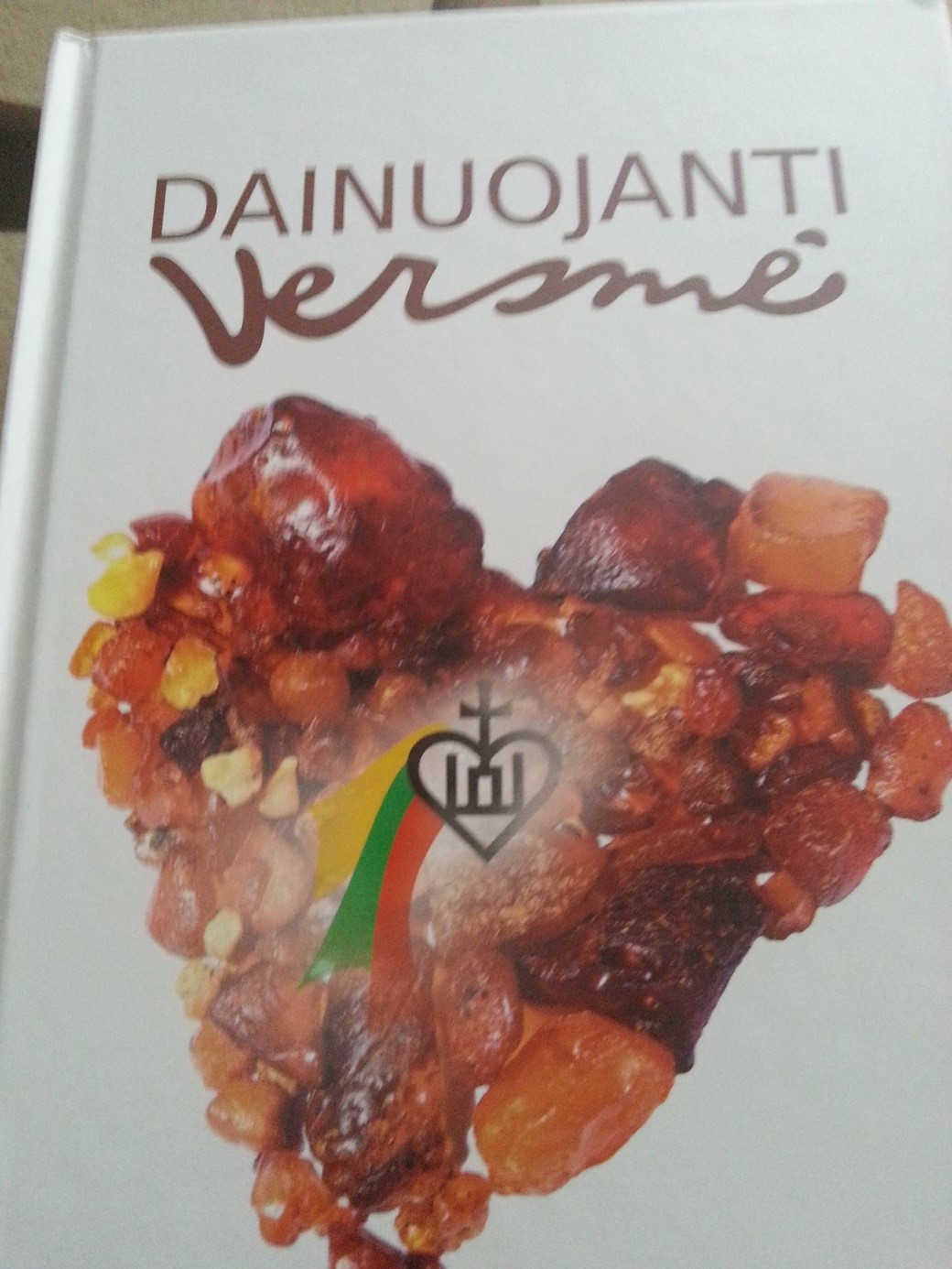
Versmė Choir 20th anniversary book – documents the Welsh trip.
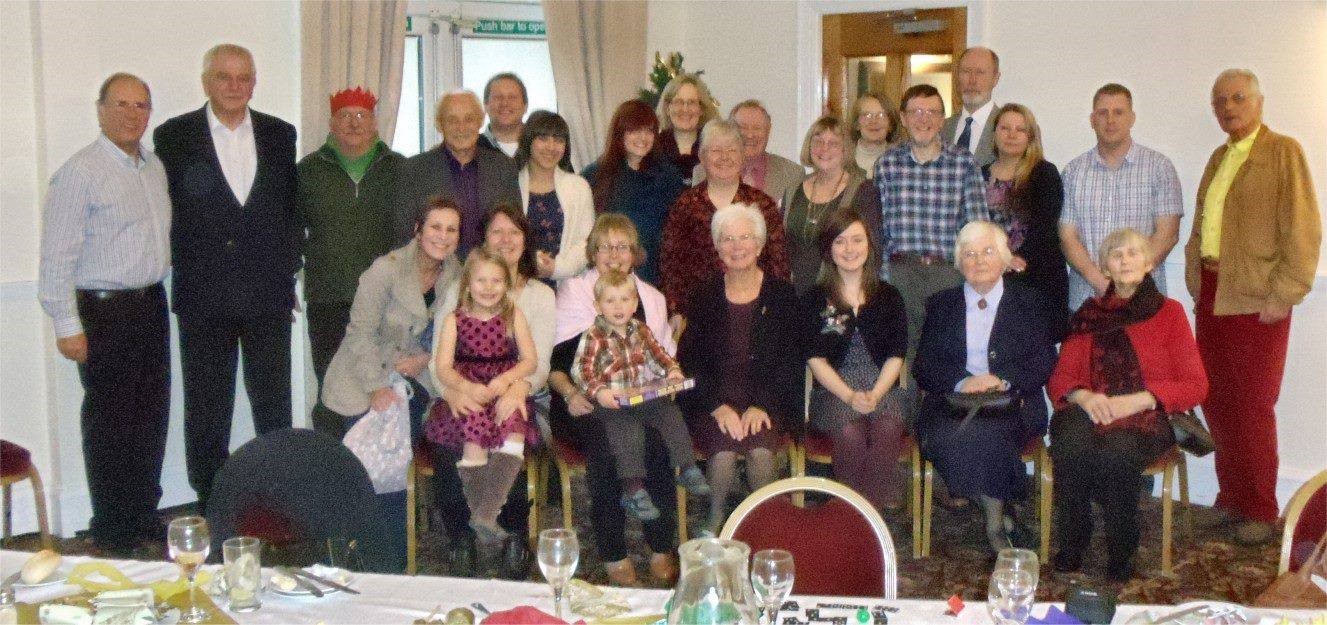
|
Wales Baltic Society Christmas Party. |
|
|
|
|
- Bookmark :
- Digg
- del.icio.us
- Stumbleupon
- Redit it
- Posted by - (2) Comment
Exclusive VilNews interview with Professor Landsbergis, Veisaitė
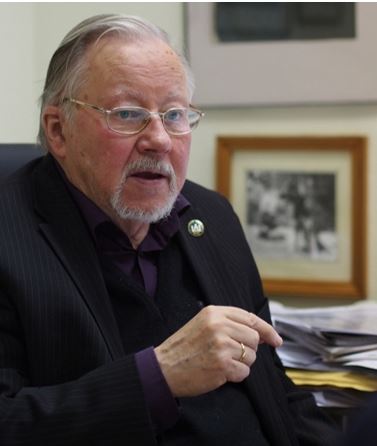 |
 |
PROFESSOR IRENA VEISAITĖ AND PROFESSOR VYTAUTAS LANDSBERGIS.
Photo: Patrick Murphy
Journalist: Dalia Cidzikaitė
Questions prepared by Aage Myhre
Today we have the pleasure of presenting a large, exclusive interview with two professors who have meant infinitely much for their homeland Lithuania. In today's interview, we focus on their memories, experiences of and thoughts about the following eras of their lives, over the years 1930-1960:
· CHILDHOOD IN KAUNAS, LITHUANIA’S INTERWAR CAPITAL
· MEMORIES OF ANTANAS SMETONA, LITHUANIA’S PRESIDENT 1926-1940
· PREWAR COMMUNISM IN LITHUANIA?
· ADOLF HITLER – NAZISM – PREWAR GERMANY
· TO BE A LITHUANIAN JEW (LITVAK) DURING WORLD WAR II
· THE LANDSBERGIS FAMILY RELATIONSHIP WITH JEWS
· LITHUANIA’S 9-YEAR BLOODY PARTISAN WAR AGAINST THE SOVIET UNION
- Bookmark :
- Digg
- del.icio.us
- Stumbleupon
- Redit it
- Posted by - (0) Comment
Lithuania 1930 – 1960
from happy freedom and growth… to war, people extermination, deportations, mass murder, emigration
to the West, guerrilla war and the beginning of a mostly depressive life under Soviet oppression…
Adjacent to our exclusive interview with Professor Irena Veisaitė and Professor Vytautas Landsbergis we bring below a few articles describing the period 1930-1960 in Lithuania.
- Bookmark :
- Digg
- del.icio.us
- Stumbleupon
- Redit it
- Posted by - (0) Comment
National rebirth 1920-1940
Lithuania declared independence in 1918, after 123 years of mostly Russian occupation. The interwar years were very successful and the country prospered immensely. Kaunas was the capital for the period 1919-1940, after Poland occupied Vilnius and southern Lithuania.
https://vilnews.com/2012-11-
https://vilnews.com/2012-04-
https://vilnews.com/2011-03-
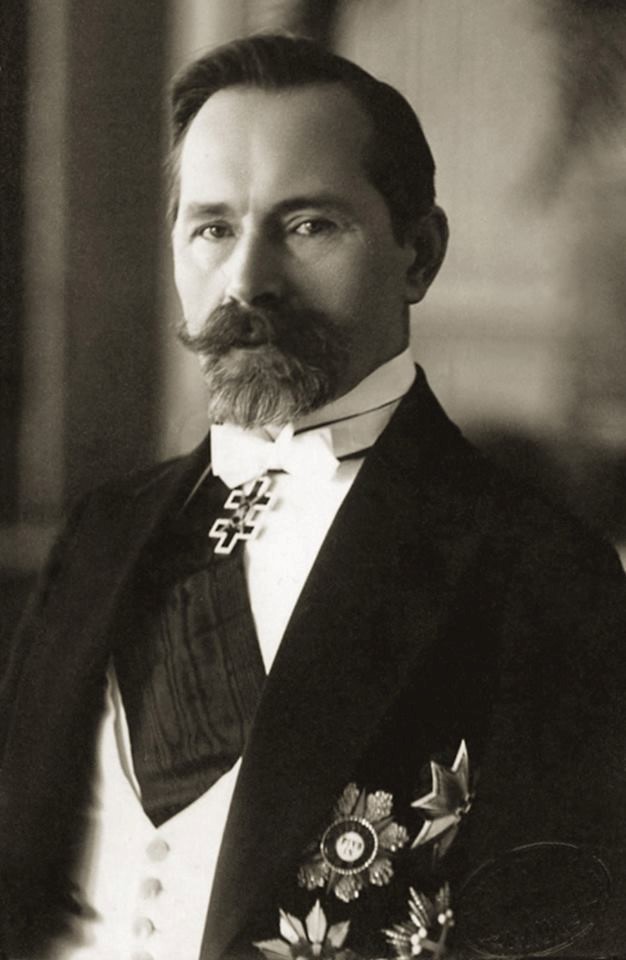
- Bookmark :
- Digg
- del.icio.us
- Stumbleupon
- Redit it
- Posted by - (0) Comment
Holocaust killed 95% of
all Jews in Lithuania
The Holocaust in Nazi-occupied Lithuania resulted in the near total destruction of Lithuania's Jewish population. Out of more than 200.000, around 95% were murdered during WWII, the most tragic, worst example of Holocaust in the whole world. https://vilnews.com/2011-01-holocaust-in-lithuania

- Bookmark :
- Digg
- del.icio.us
- Stumbleupon
- Redit it
VilNews e-magazine is published in Vilnius, Lithuania. Editor-in-Chief: Mr. Aage Myhre. Inquires to the editors: editor@VilNews.com.
Code of Ethics: See Section 2 – about VilNews. VilNews is not responsible for content on external links/web pages.
HOW TO ADVERTISE IN VILNEWS.
All content is copyrighted © 2011. UAB ‘VilNews’.

 Click on the buttons to open and read each of VilNews' 18 sub-sections
Click on the buttons to open and read each of VilNews' 18 sub-sections 






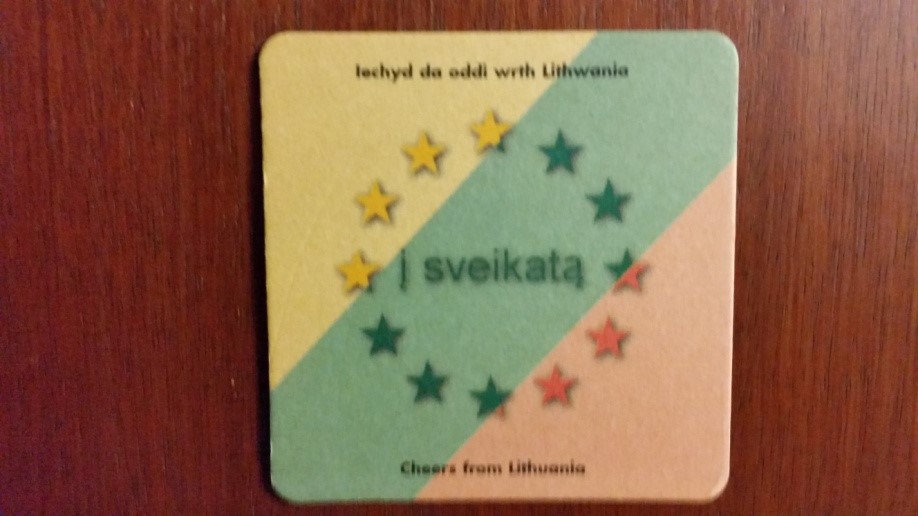









.jpg)



